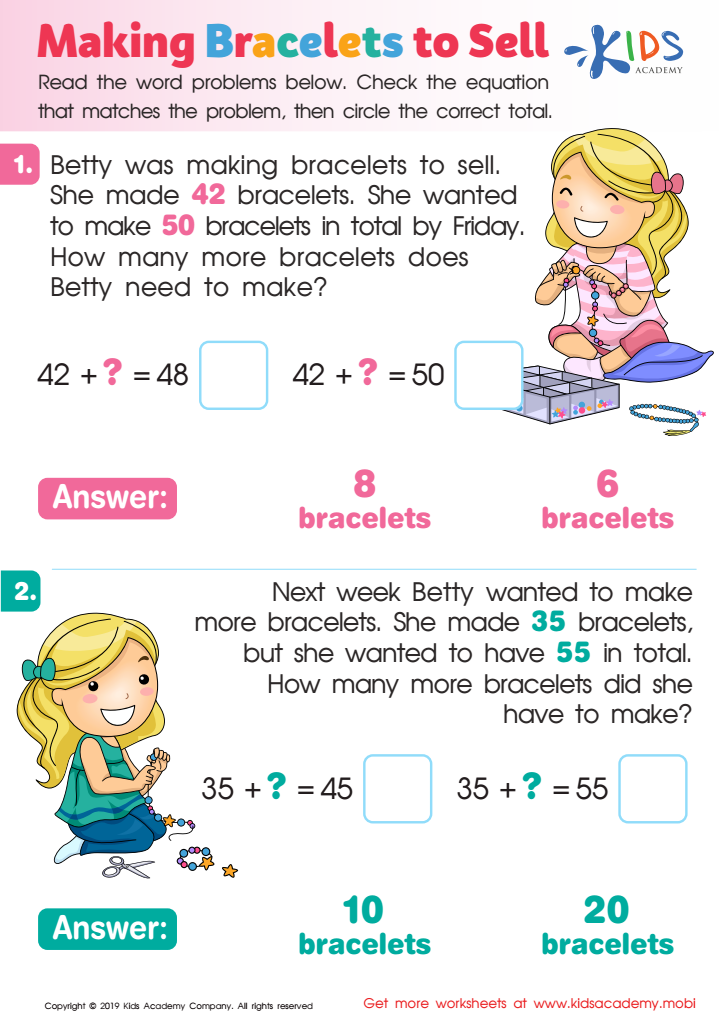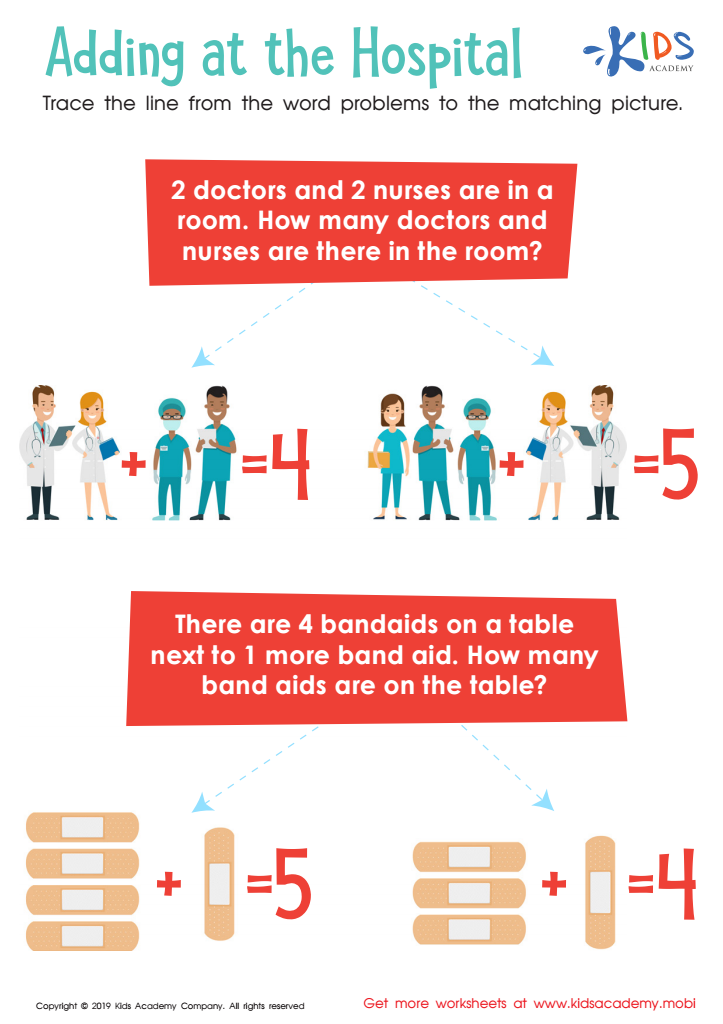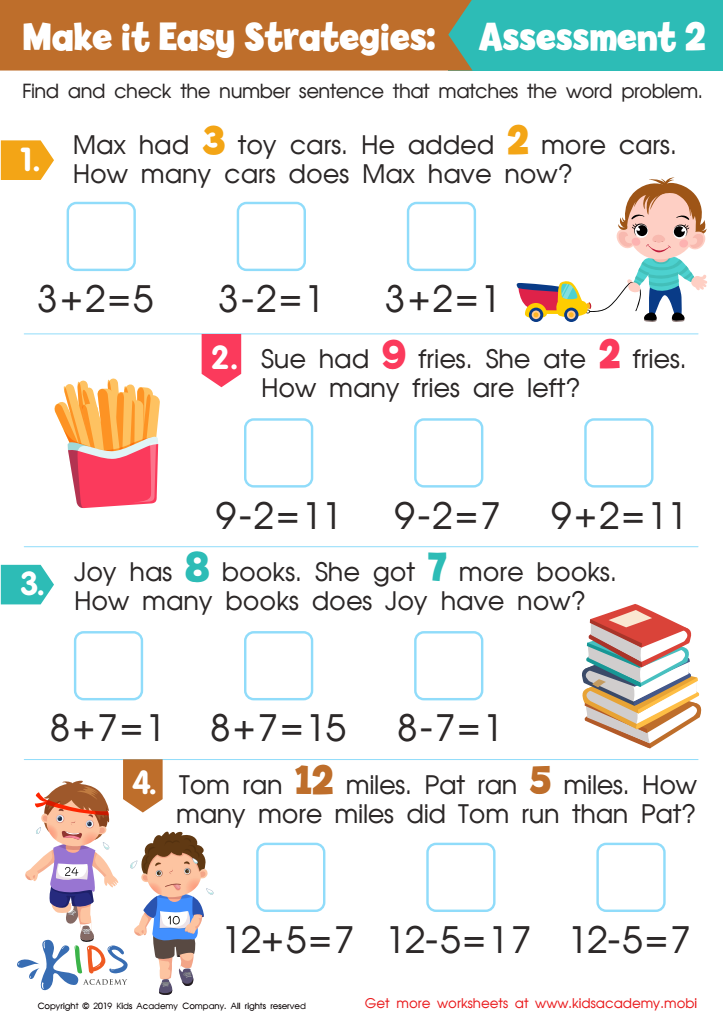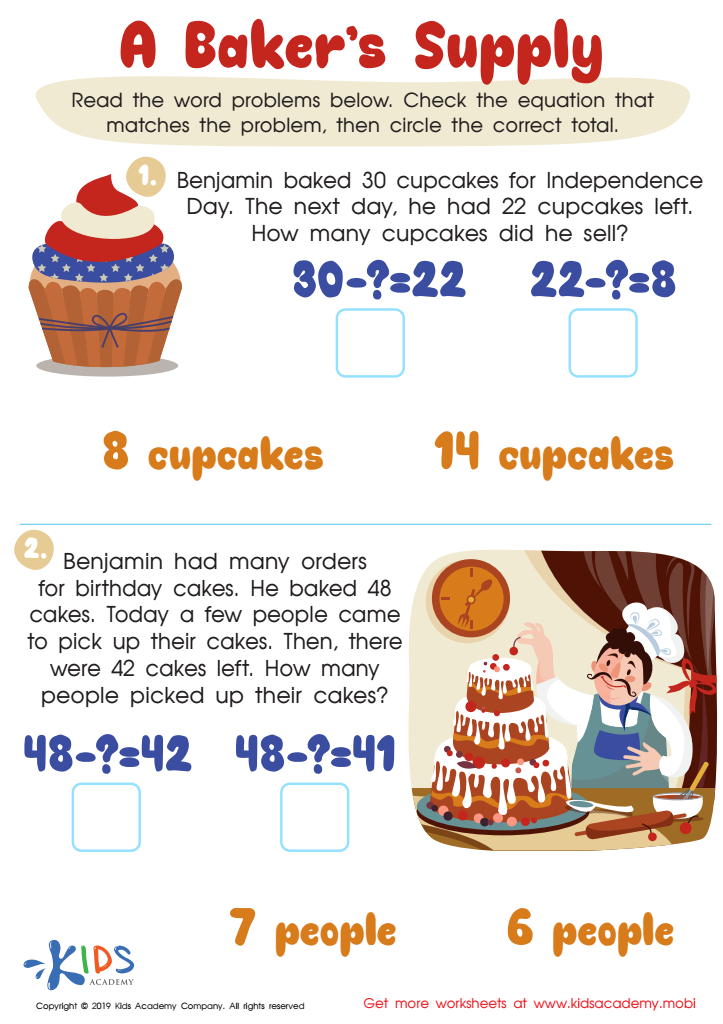Problem-solving abilities Word Problems Worksheets for Ages 7-8
4 filtered results
-
From - To
Enhance your child’s problem-solving skills with our engaging Word Problems Worksheets designed for ages 7-8. Our thoughtfully crafted worksheets help students develop critical thinking and analytical skills by challenging them with real-life scenarios. Each worksheet is aligned with essential math concepts, ensuring a seamless blend of learning and fun. By solving a variety of word problems, children will improve their ability to reason logically, apply arithmetic operations, and strengthen their overall mathematical foundation. Perfect for both classroom use and at-home practice, our worksheets provide the tools young learners need to succeed in math and beyond.


Making Bracelets to Sell Worksheet


Adding at the Hospital Worksheet


Make it Easy Strategies: Assessment 2 Worksheet


A Baker's Supply Worksheet
Problem-solving abilities, particularly through engaging with word problems, are crucial for children aged 7-8 for several reasons. Firstly, word problems help bridge the gap between abstract mathematical concepts and real-life situations, allowing children to see the practical applications of what they are learning. By contextualizing math problems within everyday scenarios, it becomes clearer and more relevant, enhancing understanding and retention.
Secondly, solving word problems bolsters critical thinking skills. When children are presented with a word problem, they must identify what is being asked, determine the relevant information, and decide the best approach to find a solution. This process develops their analytical abilities and enhances their capacity for reasoning and logical thought.
Moreover, tackling word problems encourages perseverance and resilience. Often these problems are not solved on the first try, teaching children the value of trying different strategies and learning from mistakes. Cultivating a growth mindset, where children view challenges as opportunities to grow, sets a foundation for lifelong learning and problem-solving skills.
Lastly, word problems improve language skills because they require comprehension and the ability to express mathematical reasoning in words. Incorporating problem-solving in math curriculum supports broader educational goals –math proficiency, logical thinking, literacy, and real-world preparedness, ensuring children develop into well-rounded individuals capable of navigating complex scenarios effectively.
 Assign to My Students
Assign to My Students




.jpg)














